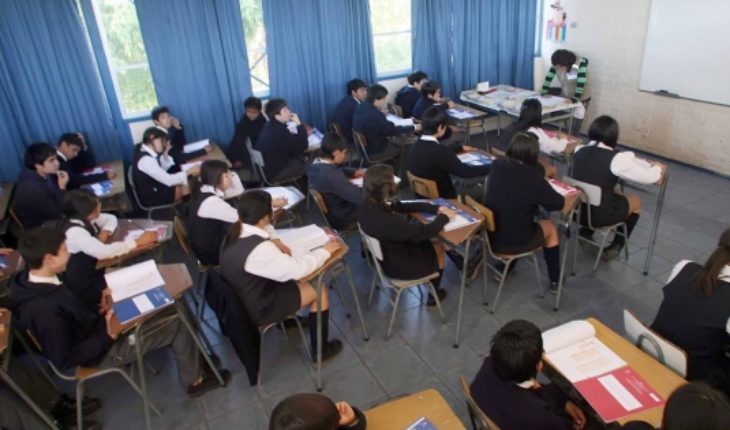On 11 July, the Labour Directorate issued Opinion No. 3445/022 interpreting Law No. 21.152 on education assistants. By overly restrictive and misled interpretation, the DT elbows what the educational legislature wrote on its own hand only a couple of months ago, openly violating the rules on legal interpretation and seriously disregarding the Educational Law in force.
It should be remembered that according to Law No. 21.152, since April of this year all assistants of the subsidized sector, professional or not, have significant benefits: their weekly working day has been decreased from 45 to 44 hours; half an hour of compulsory collation was included within the daily day; his right to leave during January and February and also during the winter holidays, as well as other general improvements to his working conditions, was enshrined.
Opinion No. 3445/022 renders this law virtually inapplicable. Let’s see why. Currently, the law states that the above benefits apply to education assistants who “provide services in kindergarten, basic and middle education, in particular subsidized establishments”. Its claim is, as stated in the legislative discussion, to include all attendees without distinction. Unfortunately, the Directorate of Labour interprets “providing services in education” as “fulfilling work related to the learning process and improving education” and therefore makes the rules of Law 21.152 applicable exclusively to those assistants who permanently have jobs in the classroom, that is, practically only technicians in kindergartens and possibly some other assistant. Thus, the vast majority of education assistants in the subsidized sector – mostly auxiliary and administrative – are excluded by secretariat from the benefits already identified.
The distinction made by the Directorate is arbitrary and illegal. The meaning of Law No. 21.152 is clear and – as dictated by the basic principles of legal interpretation – where the legislature has not distinguished it is not for the interpreter to distinguish. In addition, the DT is openly unaware of the current Educational Law. In fact, by distinguishing criteria between assistants who “fulfill work related to the learning process” from those who supposedly do not, the DT completely omits that under Article 9 of the General Education Law the common objective of all the members of the educational community – without distinction – is “contributing to the training and achievement of learnings of all the students who are members of it (…)”. As no one could basely deny that education assistants are part of the educational community, the Distinction of the DT becomes illegal because it uses a criterion that a higher-ranking law has already sanctioned in a very different sense.
In addition, the law itself misinterpreted in its article 2 of its article clearly defines all attendees as “collaborating in the development of the student teaching and learning process and the correct provision of educational service, through (other than teachers) techniques, administrative or auxiliary”. Again it is noted that the objectives are common and the distinctive functions are merely the functions.
As if that were not enough, it is clear from the reliable history of the law (and any lawyer knows that it serves almost only for these discussions) that only Senator Von Baer tried to incorporate such a distinction, fortunately without success. In the remainder of the parliamentary discussion, the cross-cutting agreement to benefit all attendees regardless of their specific role is evident.
In short: we are facing Illegal Opinion. It is imperative that the DT reconsider. Otherwise, educational institutions and education workers’ organizations must present these legal considerations where appropriate, enforcing the legitimate right for public institutions to operate legality.
The content poured into this opinion column is the sole responsibility of its author, and does not necessarily reflect the editorial line or position of El Mostrador.





